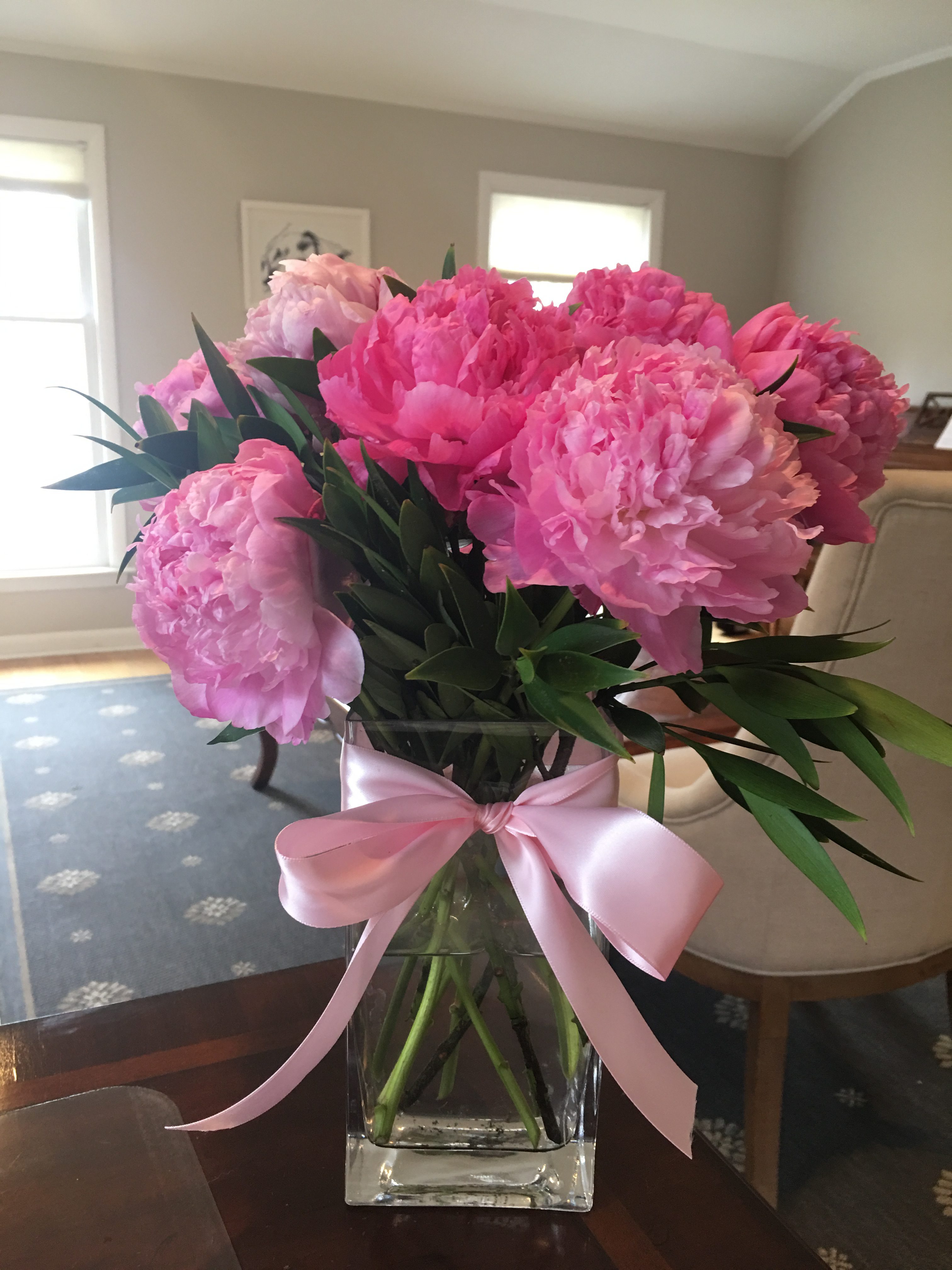What Fresh Flowers and Budgets Have In Common
This is a photo of flowers my husband gave to me on my birthday this year.
And here’s a photo of the flowers he gave me last year. Notice a pattern??
How did my husband know that I love peonies?! That they are my favorite flowers and that their blooming season falls on the exact month of my birthday?!
Is he psychic? A horticulturist?
Not exactly. After years of receiving carnations and multi-colored bouquets – mind you, all very beautiful and thoughtful gifts – I decided to admit to him that I was extremely grateful and appreciative, but oh, by the way, did he know that my favorite flowers were actually peonies and that he could get them at the flower shop in town?
I know, I know. To some, this may come across as spoiled, demanding, and utterly un-romantic. But he actually appreciated the honesty and, in fact, it makes it so much easier for him to get me a gift because there’s no guessing required– bonus!
Of course, you might not want to take honesty to the extreme and throw away all spontaneity and tactfulness aside. However, sometimes taking a moment to explain your needs and wants is essential to a healthy relationship and good communication.
This can be a useful reminder when it comes to budgeting. Often, one party has more interest in budgeting and keeping track of cash flow more than then other.
They work hard at categorizing each expense and coming up with systems to keep track of it all. They do most of the heavy lifting and proudly show their significant other the intricate spreadsheets that they’ve come up with, expecting them fully to be on board and as enthusiastic as they are.
But instead, much to their dismay (!), they react in the exact opposite way. They may feel threatened, defensive annoyed, or just plain indifferent.
The problem is not the budget per se (although there may be changes you might want to make to accommodate your partner’s own needs and wants).
The problem may just be one of communication.
Budgets can be tricky because spending touches on so many areas of one’s day to day life. Yet they are essential to planning, especially if you’re sure where your money is going and need to track it, and therefore a task you want to make sure you do together.
Here are some quick guidelines on approaching budgets as a couple:
- First and foremost, make sure you both agree that budgeting and keeping track of your expenses is a priority. If you’re not in agreement here, you may want to start with your own individual budget first until you have some buy-in from your partner. Otherwise, you will be hitting your head against a wall from the get-go.
- If you’re both on board, start SMALL. This is especially important if you’re new to budgeting or get easily overwhelmed. E.g., you may just want to begin by selecting one category to budget for, such as joint household bills or dining out/entertainment, and see how well you can stick to the plan before trying to track every aspect of your financial lives. In addition to the category of budget, you could also start small by agreeing to budget only the next 10 days and checking in after that to see to figure out what worked and what didn’t
- Be okay with differences. Even if you both agree that budgeting is important, one person may be more comfortable with details and being in the weeds vs. another who prefers big picture tracking. For example, it’s okay if you budget down to the penny and categorize every outflow while your partner allocates 20% toward savings but then spends the rest without a clear sense of where it’s going. These are two approaches to budgeting that can still work together. I’ve worked with many clients who are still able to achieve their joint goals even when their budgeting approaches are vastly different.
The key is always about communication. Be open to hearing what the other persons needs and wants are, and finding solutions that incorporate individuality into the plan.
And of course, it doesn’t hurt to add fresh flowers as a line item in your budget! 😉